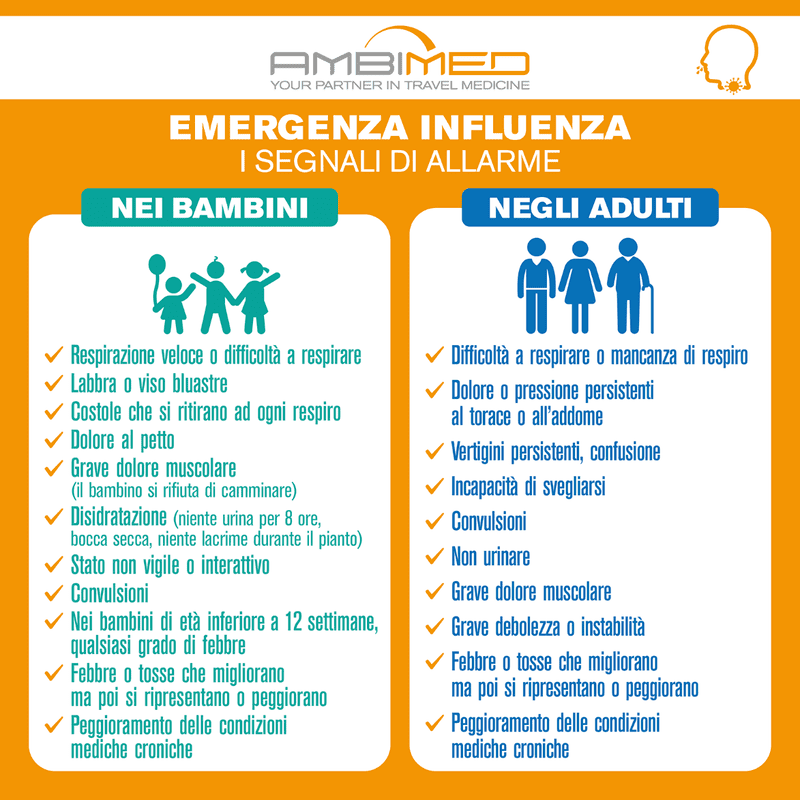
It is widely recognized in clinical and scientific practice that people aged 65 years and older are at higher risk of developing serious complications from seasonal influenza than healthy young adults.
The risk is due in part to changes in immune defenses with increasing age. In recent years, for example, an estimated 70 to 85 percent of seasonal flu-related deaths have occurred in people aged 65 years and older, and 50 to 70 percent of seasonal flu-related hospitalizations have occurred among people in this age group.
Epicenter (the epidemiology portal for healthcare professionals), through multiple scientific studies, estimates an average of 8000 deaths from influenza and its complications each year in Italy. Most of the cases, have occurred in people over 50 years old.
The best way to protect oneself from influenza and its potentially serious complications is the flu vaccine, and this year, in conjunction with the SARS-CoV-2 pandemic, it is even more so.
Flu vaccination is especially important for populations considered "at risk" including adults over the age of 65, people with diseases such as asthma or heart disease, diseases affecting the immune system, pregnant women, and also for health care workers.
Flu vaccines are reformulated each season according to the evolution of the virus. In addition, vaccine immunity wanes over the year; for these two reasons, annual vaccination is necessary to ensure the best possible protection against influenza.
The vaccines are also used by health care workers.
As a result of aging-related changes in the immune system, people aged 65 years and older may not respond to vaccination as well as younger people. Although immune responses may be lower in older people, studies have consistently demonstrated vaccine efficacy in reducing the risk of complications and hospitalizations associated with influenza nonetheless.
The vaccine may be effective in reducing the risk of complications and hospitalizations associated with influenza.
Adults aged 65 years and older should also be updated on pneumococcal vaccination to protect against pneumococcal diseases, such as pneumonia, meningitis, and bloodstream infections. Pneumococcal pneumonia is an example of a serious influenza-related complication that can result in death.
Flu vaccine, pneumococcal vaccination, and what else?"
In addition to vaccination, we recall the other important preventive measures against the flu virus, which are:
- avoid close contacts if you are feeling flu
- use a protective face mask
- cover (with your handkerchief or elbow) your nose and mouth if you cough or sneeze
- always discard handkerchiefs after use and wash hands frequently
What are the emergency warning signs of influenza?
.People who exhibit these premonitory signs should get immediate medical attention. The table is for information only and is not a substitute for a medical examination, so please consult your physician for any other serious or worrisome symptoms that you experience.





